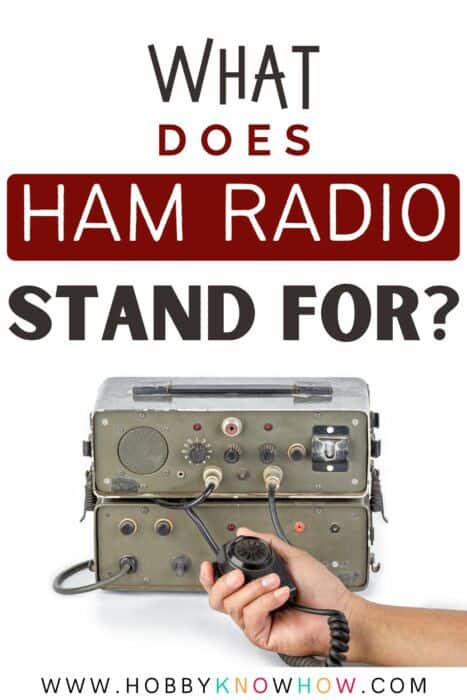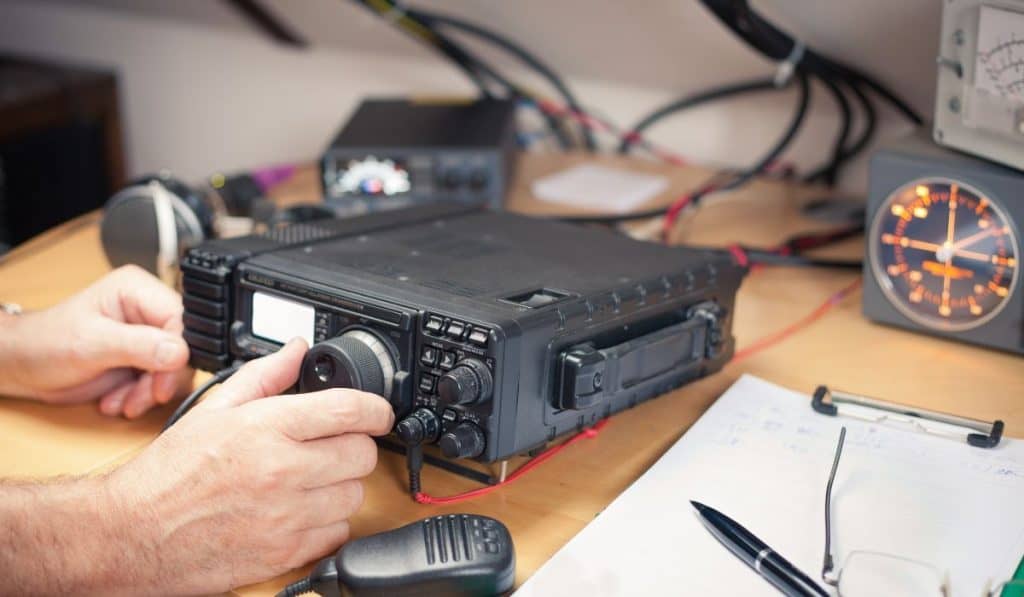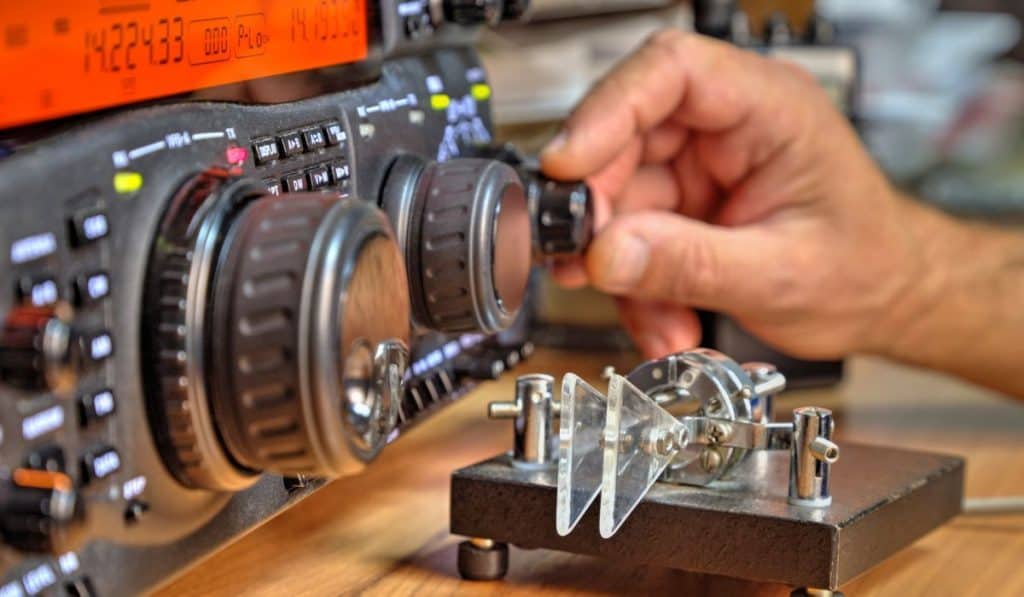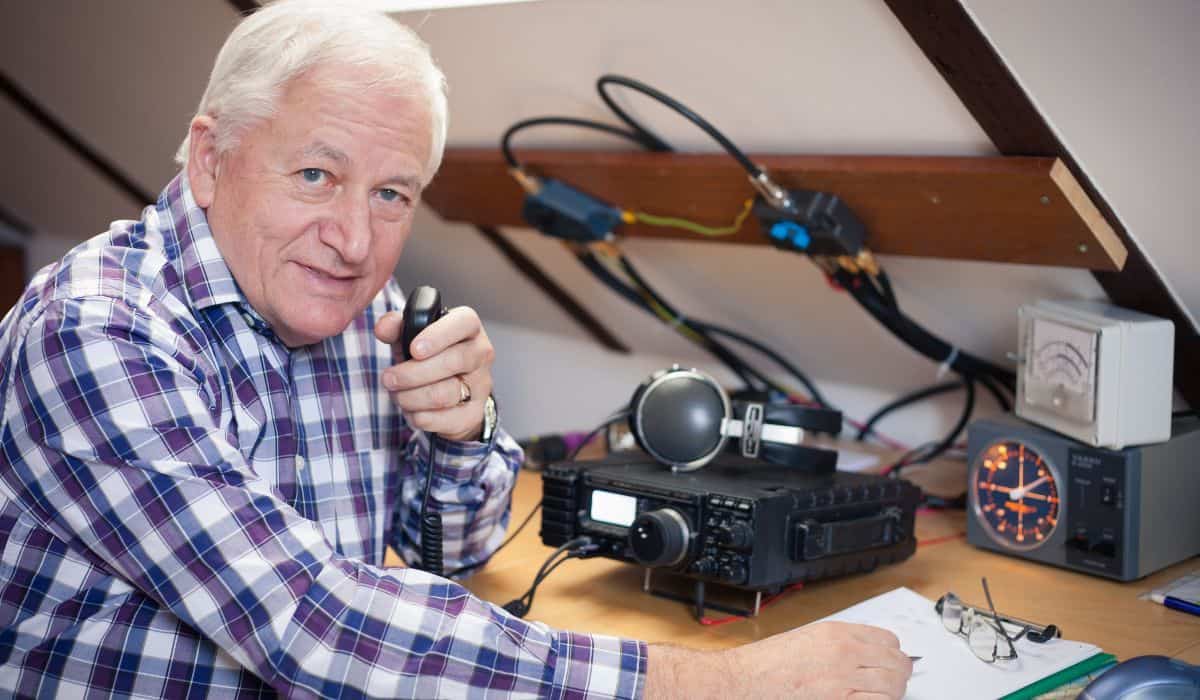Ham radio is a term used to describe amateur radio and its operations within the allowed radio frequency bands which range between 1.6 MHz and 1240 MHz on the higher end. These ham operations are carried out by amateur radio enthusiasts that are popularly known as hams for non-profit or non-commercial purposes.
People started taking notice of ham radio in the early 1900s when radio was starting to pick up the pace.
This was after important inventions by the likes of James Clerk Maxwell who defined electromagnetic waves, Heinrich Hertz for discerning the low frequencies as part of the electromagnetic spectrum, and Guglielmo Marconi who is accredited for using high power antennas for long-distance (DX) communication.
How popular is Ham Radio?
Ham radio is a hobby that is appreciated by over 3 million people around the World with the US having the largest ham community with over 700,000 hams most of who are active operators.
These individuals have jumped in during crucial times such as disasters and formed communities where they share technical information, make new friends, and so on when they are not responding to emergency calls.
Can anyone do Ham Radio?
However, to become a ham radio operator you are required to have a license which is usually issued by a regulatory institution such as the FCC for the United States.
All aspiring amateur radio operators are required to take a test with a set of questions that are essential to prove that they are familiar with the ham spectrum.
These tests contain questions that get more technical and tougher as the certification level goes up.
Read our helpful guide to passing your Ham Radio License here!
After successfully passing the test, you are given a license and callsign for identifying yourself before broadcasting which is part of the international and state regulations in most countries.

Different countries may have slightly different requirements to become a ham and different regulations.
These regulations have been put in place since the radio waves spectrum is shared by a large group of people ranging from businesses to space communications. Everyone’s needs are to be accounted for.
There are restrictions to which frequencies you can use as a ham in the radio spectrum, the maximum power you can broadcast on, the maximum antenna height, and so on, necessary to ensure that transmissions do not interfere with other users.
You can learn more about this hobby by visiting our complete amateur radio hobby guide.
Why are amateur radio operators called hams?
Two main popular theories try to demystify the origin of the word ham in reference to amateur radio operators.
The first theory originated from the Florida Skip magazine in an article that was written sometime in 1959.
In this theory or article, it is said that the word came from operators based in Harvard University known as Albert Hyman, Bob Almy, and Reggie Murray. The three of them operated an amateur station known as the Little Station.

The theory goes further to explain that they found their names to be too long for broadcasting and so they adopted the name “Hyman-Almy-Murray” for their station.
This name was also long and, so, they revised it and decided to have a shorter name and went for the name “HYALMU”.
But there was a problem. There was a Mexican ship whose station was named “HYALMO”. This was a problem since the names sounded very similar and they, therefore, decided to use each letter from their names to form the acronym “HAM”.
It is also claimed that Albert Hyman played a huge role in saving amateur radio by crying and defending their operations in congress which led to the name gaining popularity and being widely adopted by the masses.
However, according to Wikipedia, this cannot be factually correct since this theory first came up in 1948 and this was way after Ham was adopted as a term for amateur radio operators.
Wikipedia even claims that the little station did was not located in Harvard, to begin with.
The second theory:
The second and more believer theory states that the term Ham was derogatory and was used to refer to unskilled telegraphers (amateur telegraphers) before the 1900s and before amateur radio was even a thing.
Some of these amateur telegraphers would later leave the telegraphy jobs to work in sea-related jobs such as manning coastal radio stations and handling radio communications at sea.
In the early days of radio, all frequencies were shared by all users ranging from amateur operators to more professional operators that were slowly taking radio communication seriously. This meant that the risk of RF interference was even greater.

Amateur radio operators during this time used very powerful radio equipment and were able to jam communications by other entities that shared the frequencies.
When this happened the telegraphers that were now working in the sea operations would get angry and talk about how hams (amateurs) were jamming their signals. They did this because on getting their new jobs they retained the jargon that was used to refer to them and other unskilled telegraphers.
However, when amateur radio operators were referred to as “Hams” they received the name with pride and were able to effectively change its derogatory usage and spin its original means.
The change in meaning occurred in the 1940s and the name got widely adopted by other amateur radio operators.




